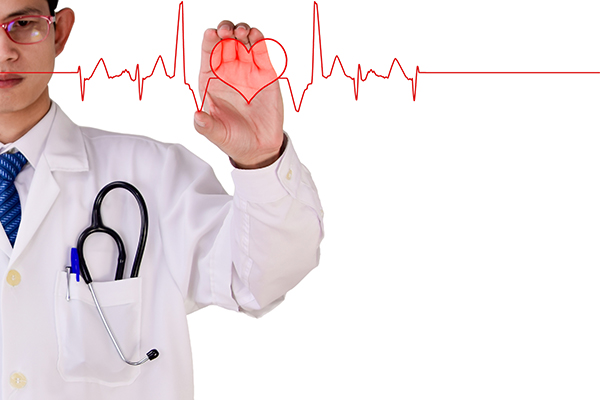Health Tips
The Warning Signs of Heart Disease

1.) Chest pain
2.) Shortness of breath
3.) Palpitation
4.) Unconsciousness
Ischemic heart disease/IHD
Recently, Ischemic heart disease is the leading causes of death in Thailand. Because heart muscle cells receive less oxygen and nutrients needed to function optimally, it affects the ability of the heart muscle to function optimally and leads to heart failure.
The pain may located at the center of the chest, radiate to the arm, neck or jaw and be associated with shortness of breath, nausea, vomiting, sweating, dizziness, and fainting. It may be provoked by exercise and stress, begins during exercise and gradually worsen but is unlikely to arise after exercise.
Protections
People who experience in many risk factors tend to have Ischemic heart disease/IHD and tend to be more severe than the others. Therefore, reducing risk factors is crucial to prevent and reduce cause of death from Ischemic heart disease/IHD.
How to reduce important risks of IHD
1. Quit smoking
2. Maintain a healthy weight
3. Exercise and have enough rest
4. Maintain normal level of diabetes, cholesterol, and blood pressure
Exercise Stress Test
Enable doctors to diagnose how well your heart handles work. The test can show if the blood supply is reduced in the arteries that supply the heart, which help doctors know the kind and level of exercise appropriate for a patient.
Who need exercise stress test?
For men age over 45 years and women age over 55 year who experience in diabetes, high blood pressure, high cholesterol, smoking, overweight, and their families have IHD. Moreover, if you have chest pain, shortness of breath, unconscious, palpitation, you may have high risks in IHD.
Echocardiography
Doctors use Echocardiography to look at your heart’s structure and check how well your heart is working, which can diagnose heart valve, heart muscle, pericardium, and heart circulation.
Who need Echocardiography?
People experience in shortness of breath, chest pain, palpitation, fainting, unconscious. People who found heart enlargement from ECQ or chest X-rays, abnormal heart sounds, cardiac murmur, and people who suspected congenital heart defects such as lip discoloration, and clubbing.